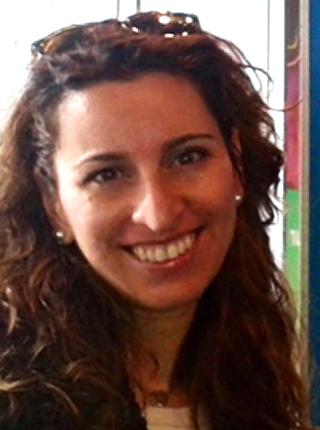This Fox Chase professor participates in the Undergraduate Summer Research Fellowship.
Learn more about Research Volunteering.
Related Articles
00 / 00

This Fox Chase professor participates in the Undergraduate Summer Research Fellowship.
Learn more about Research Volunteering.
Professor
Adjunct Professor, Department of Microbiology and Immunology, Lewis Katz School of Medicine, Temple University
Adjunct Professor, College of Science and Technology, Temple University
Adjunct Associate Professor, Department of Biochemistry, Drexel University College of Medicine
Member, Cancer Epigenetics Institute
The goal of our research is to clarify how alterations in genomic and epigenomic stability of CpG sequences lead to altered development and cancer formation. Mutations are often the consequence of defective DNA repair; we are particularly interested in the mammalian DNA repair enzymes that protect the integrity of CpG sequences in DNA: MBD4 and TDG. This is important because mutations at CpG sites represent about one third of all point mutations in cancer. In addition, CpG sites are also important for regulation of gene activity by an epigenetic process called DNA methylation. We discovered a role of TDG in active DNA demethylation (Cortellino et al. Cell, 2011), which is highly relevant in the context of the recently identified oxidized cytosine variants that have expanded the information content of the genome: TDG is the only enzyme that efficiently removes 5-formylcytosine and 5-carboxylcytosine produced by the TET dioxygenases.
We are also interested in innovative approaches of cancer prevention and therapy that are rationally based on the analysis of genetic and epigenetic alterations of cancer cells.
Finally, we are interested in the molecular basis of hereditary cancer syndromes.

Howard, J.H., Frolov, A., Tzeng, C-W.D., Stewart, A., Midzak, A., Majmundar, A., Godwin, A.K., Heslin, M.J., Bellacosa, A., and Arnoletti, J.P. Epigenetic Downregulation of the DNA Repair Gene MED1/MBD4 in Colorectal and Ovarian Cancer. Cancer Biol. Ther. 8: 1-7 (2009). PubMed
Cortellino, S., Wang, C., Wang, B., Bassi, M.R., Caretti, E., Champeval, D., Calmont, A., Jarnik, M., Burch, J., Zaret, K., Larue, L., Bellacosa, A. Defective ciliogenesis, embryonic lethality and severe impairment of the Sonic Hedgehog pathway caused by inactivation of the mouse complex A intraflagellar transport gene Ift122/Wdr10, partially overlapping with the DNA repair gene Med1/Mbd4. Dev. Biol. 325: 225-237 (2009). PMC2645042. PubMed
Caretti, E., Devarajan, K., Coudry, R., Ross, E., Clapper, M.L., Cooper, H.S. and Bellacosa, A. Comparison of RNA amplification methods and chip platforms for microarray analysis of samples processed by laser capture microdissection. J. Cell. Biochem. 103: 556-563 (2008). PubMed
Julien, S., Puig, I., Caretti, E., Bonaventure, J., Nelles, L., van Roy, F., Dargemont, C., Garcia de Herreros, A., Bellacosa, A. and Larue, L. Activation of NF-kB by Akt upregulates Snail expression and induces epithelium mesenchyme transition. Oncogene 26: 7445-7456 (2007). PubMed
Turner, D.P., Cortellino, S., Schup, J.E., Caretti, E., Loh, T., Kinsella, T.J., Bellacosa, A. The DNA N-glycosylase MED1 exhibits preference for halogenated pyrimidines and is involved in the cytotoxicity of 5-iododeoxyuridine. Cancer Res. 66: 7686-7693 (2006). PubMed
Bellacosa, A., Kumar, C.C., Di Cristofano, A., Testa, J.R. Activation of AKT kinases in cancer: implications for therapeutic targeting. Adv. Cancer Res. 94: 29-86, 2005. PubMed
Larue, L. and Bellacosa, A. Epithelial-mesenchymal transition in development and cancer: role of phosphatidylinositol 3' kinase/AKT pathways. Oncogene 24: 7443-7454, 2005. PubMed Collapse
This Fox Chase professor participates in the Undergraduate Summer Research Fellowship.
Learn more about Research Volunteering.